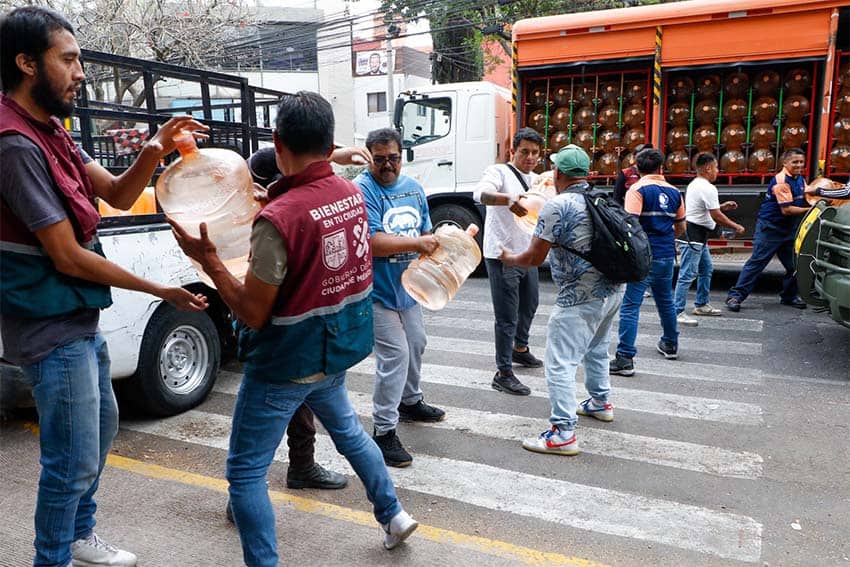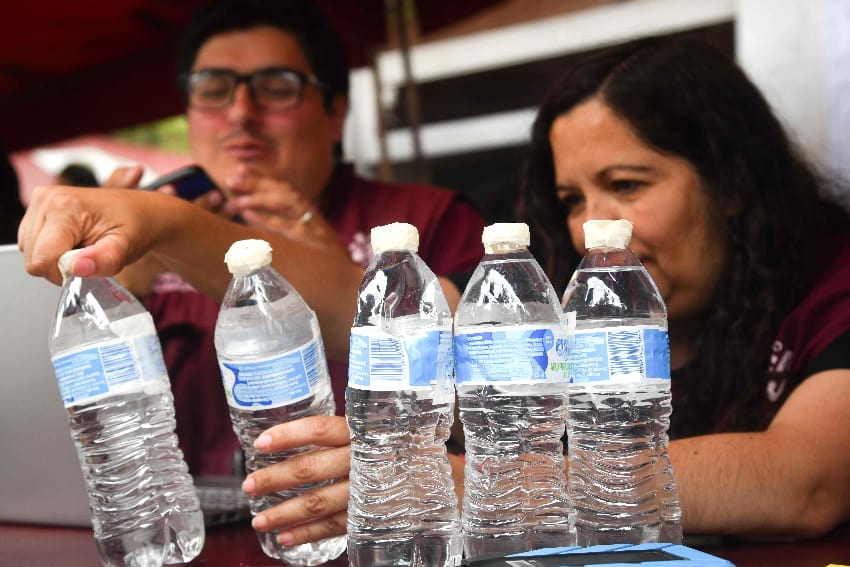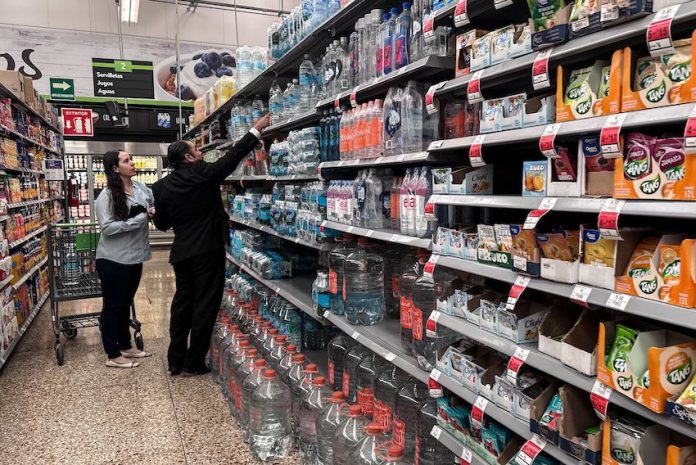The Mexico City water authority (Sacmex) warned those living in the Benito Juárez borough not to drink foul-smelling water, or use it to brush their teeth or give it to pets, after city authorities advised residents last week that contamination will continue to affect the water supply for another two weeks.
Criticized for being slow to react to the emerging crisis after residents began reporting complaints in late March, the capital government has taken steps to address the contamination, but the situation — like the water — remains murky.

Mexico City Mayor Martí Batres on Sunday announced that his government had set up a second command center in the Nápoles neighborhood of Benito Juárez and the Naval Ministry (SEMAR) had installed a potable water apparatus. The city also delivered several hundred 20-liter bottles of purified water for residents of affected neighborhoods, including Nonoalco, Nochebuena, Del Valle and Tlacoquemécatl.
The city has begun emptying and sterilizing cisterns across the borough, with the newspaper El Financiero reporting that three wells had been secured by the National Guard. Sacmex, however, said the Miraflores, Jardín Pombo and Rosendo Arnaiz wells had already been inspected by the agency and found no evidence of vandalism or of gasoline in the system.
Sacmex is still trying to pinpoint the cause of the water contamination in Benito Juárez after saying a week ago that they had traced the problem to the Alfonso XIII well. Though located in the neighboring borough of Álvaro Obregón, the Alfonso XIII well supplies water to the areas of Benito Juárez that are currently dealing with contaminated tap water.
National oil company Pemex said it had examined an oil duct that passes within meters of the Alfonso XIII well and found the pipeline to be undamaged. “We did not see any fissure, leakage or evidence of an illegal tap on the duct,” director of Pemex Logistics Javier Emiliano González told the newspaper La Jornada.

Early speculation was that criminals siphoning oil from a Pemex pipeline — an increasingly frequent occurrence in Mexico City, according to the newspaper Reforma — had caused a leak that had infiltrated the city’s water distribution system.
On Friday, Pemex confirmed that trace amounts of oil derivatives and industrial lubricants had been found in water taken from taps in Benito Juárez.
A Pemex official told La Jornada newspaper that the amount of contaminants was so minuscule it had not been detected in initial tests.
Over the weekend, Mayor Batres insisted the contamination does not pose serious risks to public health but cautioned residents of Benito Juárez to avoid drinking the water, urging them to cook food, brush their teeth and provide their pets with purified and bottled water.
“The water from your taps should only be used for washing dishes, washing cars, cleaning floors and patios and for flushing your toilets,” Batres said.
As of Monday afternoon, no statements have been made as to what caused the contamination.
With reports from El Financiero, La Jornada and Sin Embargo
